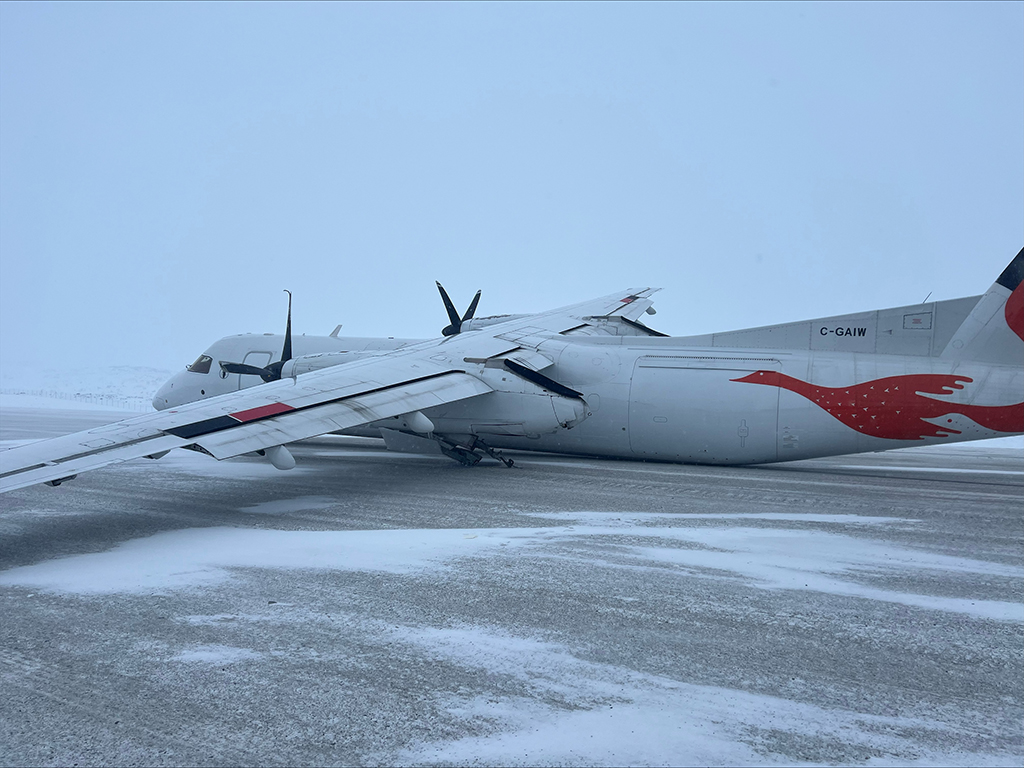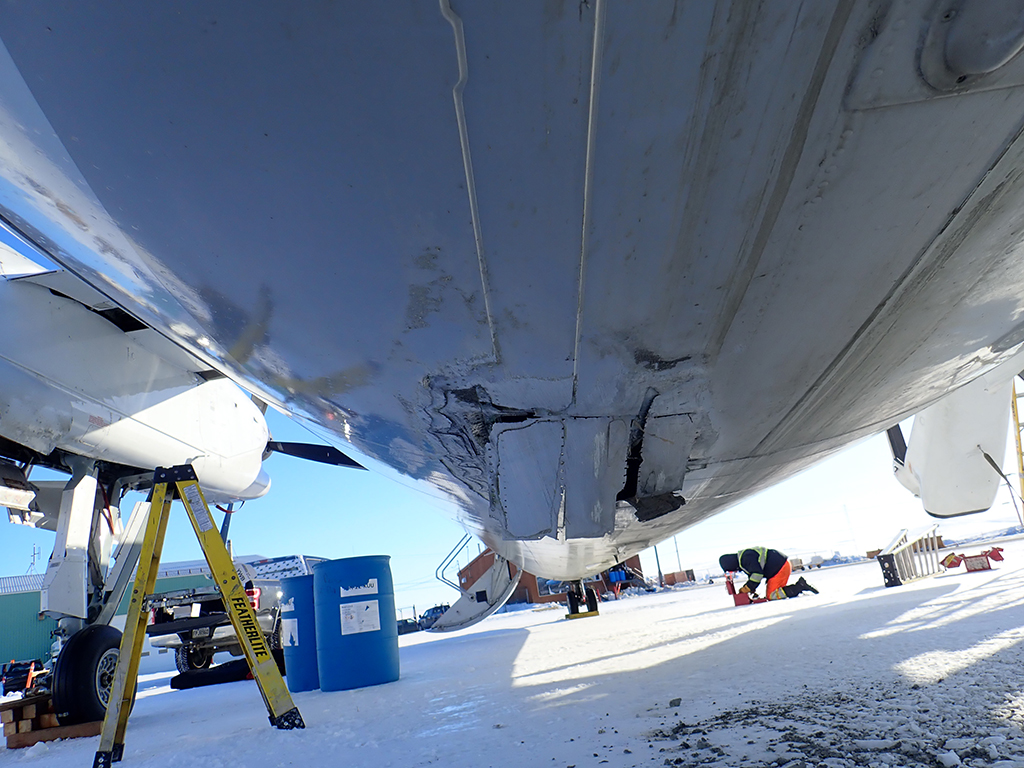Touchdown short of runway
Air Inuit Ltd.
Boeing of Canada Ltd. de Havilland Division DHC-8-314, C-GAIW
Kangiqsujuaq (Wakeham Bay) Airport (CYKG), Quebec
The occurrence
On 30 March 2024, at 1352 Eastern Daylight Time, the Boeing of Canada Limited de Havilland Division DHC-8-314 aircraft (registration C-GAIW, serial number 300) operated by Air Inuit Ltd. took off from La Grande Rivière Airport (CYGL), Quebec, to conduct a daytime cargo flight under instrument flight rules to Kangiqsujuaq (Wakeham Bay) Airport (CYKG), Quebec, with 2 flight crew members and 1 cargo agent on board. During landing, the wheels touched down slightly short of the runway, and the lower part of the left main landing gear broke off. The aircraft bounced and touched down again with only the nose wheel and right landing gear. Directional control was maintained, and the aircraft came to a stop on the runway. The aircraft sustained substantial damage to the left landing gear, fuselage, and left propeller. There were no injuries.
Download high-resolution photos from the TSB Flickr page.
Class of investigation
This is a class 3 investigation. These investigations analyze a small number of safety issues, and may result in recommendations. Class 3 investigations are generally completed within 450 days. For more information, see the Policy on Occurrence Classification.
TSB investigation process
There are 3 phases to a TSB investigation
- Field phase: a team of investigators examines the occurrence site and wreckage, interviews witnesses and collects pertinent information.
- Examination and analysis phase: the TSB reviews pertinent records, tests components of the wreckage in the lab, determines the sequence of events and identifies safety deficiencies. When safety deficiencies are suspected or confirmed, the TSB advises the appropriate authority without waiting until publication of the final report.
- Report phase: a confidential draft report is approved by the Board and sent to persons and corporations who are directly concerned by the report. They then have the opportunity to dispute or correct information they believe to be incorrect. The Board considers all representations before approving the final report, which is subsequently released to the public.
For more information, see our Investigation process page.
The TSB is an independent agency that investigates air, marine, pipeline, and rail transportation occurrences. Its sole aim is the advancement of transportation safety. It is not the function of the Board to assign fault or determine civil or criminal liability.

